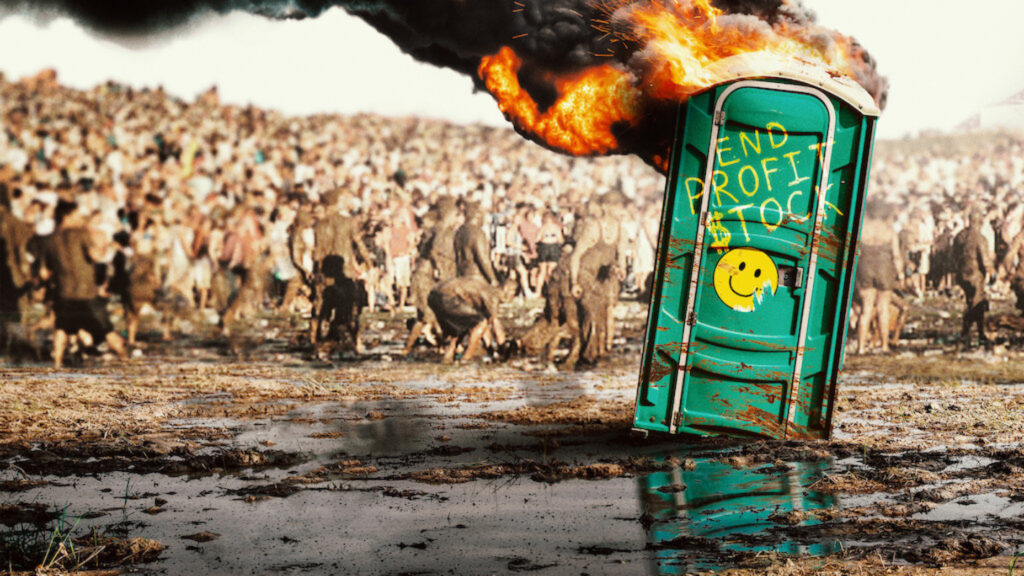In watching the Netflix documentary Trainwreck: Woodstock ’99, I couldn’t help but flash back to my own experience attending this ill-fated event. Which marked the 30th anniversary of the groundbreaking countercultural event that featured three days of peace and music. My source of comparison was Woodstock ’94, which despite the rain and mud had a communal spirit and awesome musical lineup. So, I went to Woodstock ’99 with that same expectation, only to be sorely disappointed. The difference between 1994 and 1999 was the Gen X ethos of that slacker sensibility morphed into a very different and dark vibe in search of a cause.
I was at Woodstock ’99 for just a few days…
Ony because of all the attendee angst and the music being played at that time was very angry and discordant. The Columbine school shooting had just happened a few months earlier, which event organizers tried to turn into a rallying cry against gun violence by holding a candlelight vigil (more on that later). Event organizers were trying to create this nostalgia around the ’69 Woodstock where the Vietnam War was a cause around which to rally. That spirit carried over into the ’94 event, but Woodstock ’99 became a powder keg when angst and toxic masculinity collided with angry music, extreme heat emanating from a concrete military compound that hosted the event and crass commercialism that fleeced young attendees.
All these forces created a perfect storm that led to disaster.
I was with a group of women who immediately sensed danger. There was no communal feeling or soulful purpose for the show, and I think a real sense of purpose was missing. There was no togetherness. Also, some of the musical headliners like Limp Bizkit and Creed quickly faded thereafter as the millennium was coming to a crashing halt. The irony was that the candles passed out by an anti-gun group to honor the memory of those who died in the Columbine tragedy were used to burn down the camp. I remember the rage and surplus of energy that slayed the easygoing slacker and skateboard sensibility of the ’90s. Looking back, it clearly was a disorganized mess and assemblage of too many rebels without a cause in an era in search of a meaningful identity.
Previous Articles:
How Ayahuasca Helped Fuel an MVP Season for Aaron Rodgers
How and why my time at Burning Man was so transformational
